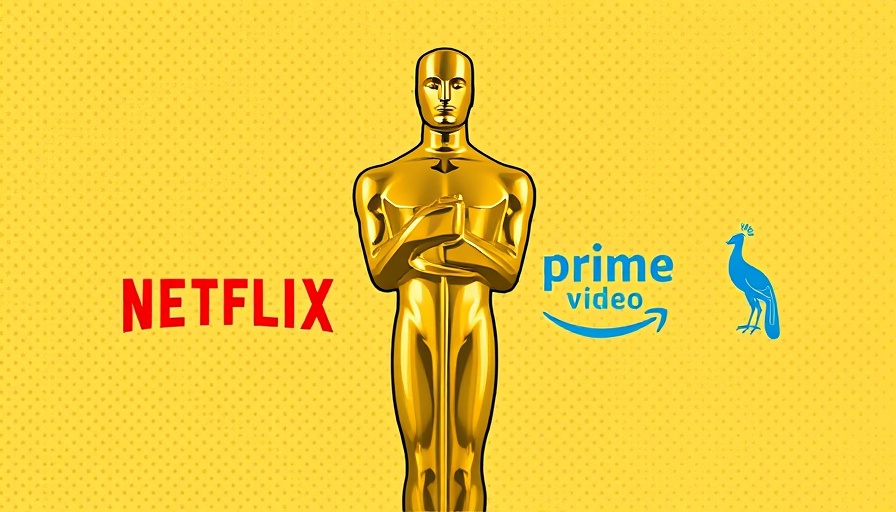
Netflix Dominance in Oscar Season: The Metrics Behind the Nominations
As the 2025 Oscars approach, Netflix once again finds itself in the spotlight, leading the pack with a remarkable 18 nominations, thanks to its film Emilia Pérez. This Spanish-language musical, directed by Jacques Audiard, leads the nominations with an impressive thirteen nods, showcasing Netflix's commitment to diversifying its content while aiming for Oscar glory.
This surge in nominations not only reinforces Netflix’s reputation as a streaming powerhouse but also highlights a significant shift in the film industry where streaming services are taking center stage in traditional arenas. In previous years, such as in 2021, Netflix had a record-setting year with 36 nominations, ultimately snagging seven awards. The stakes are high for this year’s ceremony on March 2, with Emilia Pérez appearing to remain a frontrunner despite recent controversies surrounding its star, Karla Sofía Gascón.
A Crisis Mixed with Triumph: Karla Sofía Gascón's Controversial Past
Karla Sofía Gascón, who gained international attention as the first openly transgender nominee for Best Actress, is currently facing backlash over previously resurfaced social media posts deemed offensive and controversial. While Netflix has attempted to distance itself from Gascón amid her public relations turmoil, the company’s strategy also illustrates a broader effort to navigate the complexities of contemporary media representation.
The disconnect between Gascón and Netflix has led to a challenge for the marketing campaign. While the film’s achievements are deserving of celebration, the overshadowing controversy risks diluting its momentum, pushing the studio to focus on other nominated figures such as co-star Zoe Saldaña, who is poised for a Supporting Actress win.
The Influences of Boutique Streamers like Mubi: A New Age of Proportional Representation
Mubi, another key player in this year’s Oscar race, secured 6 nominations, largely due to its acquisition of the well-received film The Substance. This demonstrates how smaller, boutique platforms are beginning to carve their space in the industry, alongside giants like Netflix. Their ability to acquire films that resonate critically signifies that the award race is no longer monopolized by a few major studios but rather shared amongst varying degrees of streaming services.
Mubi’s approach of prioritizing curated, thoughtful content has attracted audiences looking for substance over mere star-power dynamics. As the Academy seeks to redefine its parameters for eligibility and acceptance, the spotlight on such platforms might just pave the way for a more balanced and inclusive future.
Future of the Oscars: Will Streaming Platforms Transform the Landscape?
As the Oscar awards evolve, the impact of streaming can be observed across different dimensions, presenting both risks and opportunities. With rising viewership and changing demographics, awards presentations may need to adapt to maintain relevance. For instance, the upcoming Oscars have seen revisions in how nominees are presented and recognized, responding to calls for diversity and greater inclusion of voices that resonate with modern audiences.
Moreover, decisions made now could shape the film and awards narrative in years to come. With controversies brewing and fierce competition amongst streamers, how the 2025 Oscars unfold could determine the strategic direction of diversifying content in the industry while possibly altering the paths of future nominees.
As a decision-maker exploring the utilization of streaming content in your organization, understanding these dynamics can provide valuable insights. Engaging with platforms that emphasize diversity and quality content could mirror broader shifts in your own industry practices.
 Add Row
Add Row  Add
Add 




Write A Comment